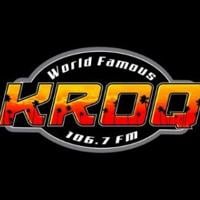After years of struggling with ratings, ownership changes, and competition from iHeartMedia’s “Alt 98.7” KYSR, Audacy’s KROQ (106.7) Los Angeles is staging a notable comeback. The modern/alternative rock station, which shifted toward TikTok-driven alt-pop and lost its long-running “Kevin and Bean” morning show, now ranks second among adults 25-54, according to Nielsen’s October 2025 survey.
KROQ posted a 5.8 share, up 123% from a year ago when it ranked 16th in the demo with a 2.6. Much of the turnaround is credited to the “Klein/Ally Show” in mornings, hosted by Kevin Klein and Ally Johnson, which logged its best numbers ever with a 7.0 share, jumping from 14th in March 2025.
“A lot of people thought KROQ was dead — and it was dead to a lot of our listeners — but now here we are, five years later,” KROQ Senior VP of Programming Kevin Weatherly, who returned to the station in 2022 after previously programming KROQ from 1992 to 2020, tells Variety. “Not only have we come back from that, but we’re back bigger in terms of ratings success than we’ve been in 15-plus years.”
Another factor in the rebound is the April return of “Kevin and Bean” co-host Kevin Ryder and Doug “Sluggo” Roberts, who had been hosting afternoons on KLOS (95.5). “Kevin Ryder coming back had the halo effect of really benefiting the radio station,” Weatherly says. “It gave people permission that were pissed off, that didn’t want anything to do with KROQ, to go, ‘OK, if he’s coming back, it’s cool for us too.’”
KROQ, known as the “World Famous KROQ,” initially broke new wave acts such as Depeche Mode, The Clash, and Duran Duran in the 1980s, and later alternative/grunge artists like Nirvana, Red Hot Chili Peppers, and Pearl Jam. It was named Rolling Stone’s “Radio Station of the Year” in 1992 and 1993 and was inducted into the Rock Radio Hall of Fame in 2014.
Since his return, Weatherly has refocused on the alternative acts that defined KROQ’s heyday, targeting longtime listeners who grew up with Foo Fighters, Red Hot Chili Peppers, Linkin Park, and Green Day. “During COVID, former Brand Manager Mike Kaplan pulled most of those acts from rotation in favor of TikTok-flavor-of-the-moment bands,” Weatherly says. “That’s not what people expect or want from KROQ. It’s just getting back to what people expect.”
KROQ now programs roughly 70% gold and 30% new music, a strategy Weatherly says better serves the station’s 25-54 audience. “Our audience grew up with KROQ. We’re not chasing something that we’re not going to probably get any longer. We’re going to satisfy the people that are still here,” he says.
For Ryder and Klein, the return has been energizing. “It feels like I’m fully back, and I’m getting a ‘this is fun again’ vibe at KROQ — which is contrary to the way it has been,” Ryder says. “People who were there for the five years I wasn’t said it was difficult; management didn’t know what they were doing. Kevin Weatherly coming back has changed the company dynamic.”
While KROQ’s rebound mirrors trends seen at other major-market alternative stations — such as Audacy’s KITS San Francisco and Cumulus Media’s WNNX Atlanta — Weatherly stresses that KROQ isn’t just looking backward. “We want there to be a thread of continuity to the past, but we’re not living in the past,” he says. “We’re not a classic alternative station; we still look forward. That’s one of the differences from five years ago, when we tried to distance ourselves from anything that happened before.”

